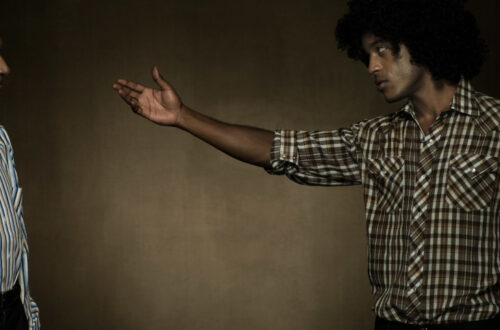
The Art of Disappearing
There’s a man who once couldn’t leave a petrol station without someone asking for a selfie. His name still floats through conversations, especially late at night when people share old videos on their phones. Back in the early 2010s, he was one of South Africa’s most recognisable hip-hop artists, his face on billboards, his songs on every radio station. Then, just as quickly as he arrived, he vanished. No farewell concert, no final release, just silence. And if you pass him today, sitting outside a coffee shop in a plain white T-shirt and jeans, there’s nothing about him that hints at the stadiums he once filled.
This isn’t a one-off story. Across South Africa, there’s a quiet, fascinating thread running beneath the surface of celebrity culture, people who reach real fame, sometimes even wealth, and then walk away from it. Not because they failed. Not because they couldn’t handle the spotlight. But because they simply chose to disappear.
For those on the outside, it doesn’t make sense. Why would someone build a name, a brand, an empire, and then switch it all off? But speak to those who’ve done it, and a clearer picture starts to form. Fame in South Africa isn’t always the smooth, polished thing it appears to be on magazine covers. It comes with layers most people never see, constant requests from family, the pressure to maintain an image, the quiet stress of knowing that success today doesn’t guarantee anything tomorrow.
One former rugby player, now living in a smaller town near Pietermaritzburg, describes it as a kind of relief. For years, his face was on TV screens every Saturday. Kids would shout his name from the side of the field. And yet, what he remembers most is how tired it all made him. The endless events, the late-night interviews, the feeling that he couldn’t walk into a café without someone analysing what brand of sneakers he was wearing. When his contract ended, he didn’t renew. He didn’t chase another team. He sold his house, moved to a quieter place, and started working as a community sports coach. No cameras. No crowds.
It’s not always about the pressure of being known. Sometimes, it’s about control. For musicians especially, there’s often a point where the work stops feeling like their own. One Cape Town-based DJ, once a regular at major festivals, now runs a small vinyl shop in Observatory. Ask him why he stepped away, and he’ll talk about ownership. How music stopped being about what he wanted to play and became about sponsorship deals, brand partnerships, radio edits. Walking away meant taking the music back, even if it meant fewer zeroes in the bank account.
There’s also the question of privacy. In a country where fame can sometimes blur into unwanted attention, walking away can feel like reclaiming a piece of yourself. That same rapper from Johannesburg once mentioned that even family started treating him differently after he became known. Not badly, just differently. Every conversation had a quiet edge to it, as if money or favours were always hovering just behind the words. When he left the industry, he didn’t just step away from work. He stepped away from that version of himself entirely.
 For some, disappearing means physically moving. Johannesburg to Knysna. Durban to a quiet farm outside Bloemfontein. Trading city lights for small towns where no one cares about past fame. For others, it’s more subtle, changing phone numbers, deleting social media accounts, not showing up where people expect to find you. One former fashion influencer from Cape Town now works as a graphic designer, completely offline. Her old Instagram handle sits frozen with half a million followers and no new posts since 2022. If anyone asks what happened to her, there’s no clear answer.
For some, disappearing means physically moving. Johannesburg to Knysna. Durban to a quiet farm outside Bloemfontein. Trading city lights for small towns where no one cares about past fame. For others, it’s more subtle, changing phone numbers, deleting social media accounts, not showing up where people expect to find you. One former fashion influencer from Cape Town now works as a graphic designer, completely offline. Her old Instagram handle sits frozen with half a million followers and no new posts since 2022. If anyone asks what happened to her, there’s no clear answer.
What ties all these stories together is a certain kind of deliberate silence. None of these people left with a dramatic announcement. There were no tell-all interviews, no public statements. One day they were there. The next, they weren’t. And in their absence, something almost mythic starts to form. Fans speculate. Gossip pages wonder. But the truth is usually simpler, quieter, more human than headlines would suggest.
Walking away from fame in South Africa doesn’t mean disappearing completely. Many of these individuals still live full lives, raising kids, running small businesses, coaching local teams, making art just for themselves. But they do it on their own terms now. No contracts. No schedules built around public appearances. Just life, stripped back to something that feels manageable again.
It’s a kind of ending most industries don’t talk about. Success stories are usually framed as things that never end, as if being famous, once achieved, is a permanent state. But in reality, for many South Africans who find themselves in the spotlight, the real victory comes in knowing when to leave. In stepping away before the attention turns sour, before the pressure becomes too much.
And so they vanish. Faces once familiar on TV now blending into supermarket queues. Voices that once filled stadiums now quietly humming to themselves in small workshops or studios. Not lost. Not broken. Just gone from the stage, living out the rest of their days in peace.




